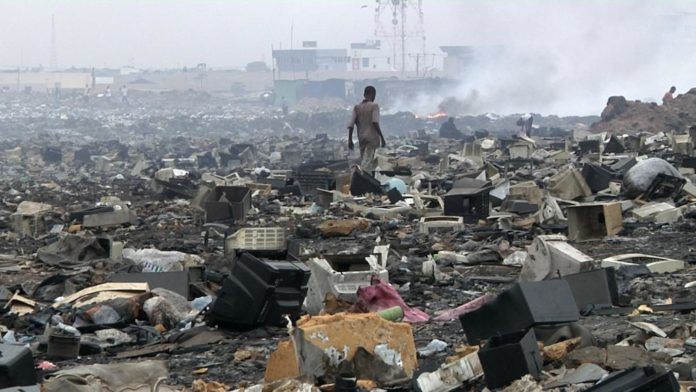In the 21st century, technology is deeply woven into the fabric of our lives, but with this digital revolution comes an enormous environmental and economic challenge – electronic waste (e-waste). Across the globe, millions of tonnes of discarded electronics pile up annually, and Africa is no exception. However, this rising tide of e-waste offers a unique opportunity for the continent. By mining e-waste, Africa could unearth a gold mine, not just in terms of precious metals, but also in job creation, economic growth, and environmental sustainability.
The Hidden Treasure in E-Waste
While many view e-waste as a growing problem, few realise the vast potential it holds. Inside discarded electronics like old phones, computers, and televisions, are precious metals such as gold, silver, platinum, and copper. In fact, reports show that e-waste contains about 50 times more gold than the amount mined from ores worldwide. In Africa, where mining is a significant economic activity, this untapped resource presents a chance to revolutionise the sector.
The process of extracting valuable metals from e-waste is called “urban mining.” It involves recovering these metals from discarded gadgets that have outlived their usefulness. E-waste recycling could create a sustainable source of precious metals, which would reduce reliance on traditional mining methods, known for their negative environmental impacts. By leveraging this opportunity, Africa can lead the world in sustainable mining practices while tapping into the rich resources lying in landfills.

A Gold Mine for Jobs and Innovation
In addition to the environmental benefits, the mining of e-waste could stimulate job creation and innovation across Africa. The demand for skilled labour in recycling facilities would rise, providing opportunities for engineers, technicians, and even entrepreneurs to develop cutting-edge technology and processes for more efficient recovery. Local businesses could emerge, focused on the collection, sorting, and processing of e-waste, benefiting both the economy and the communities involved.
Furthermore, e-waste recycling could foster innovation, as African countries explore ways to improve waste management and develop cleaner technologies. Africa could become a hub for e-waste innovation, with local start-ups driving solutions that not only benefit the continent but also provide sustainable models for the global market.
Environmental Benefits: Protecting Africa’s Future
Africa is one of the most vulnerable regions to the effects of climate change, and the environmental damage caused by improper disposal of e-waste could exacerbate this issue. When electronics are discarded improperly, they often leak toxic substances like lead, mercury, and cadmium into the environment, contaminating water supplies and soil.
By embracing e-waste recycling, African countries can significantly reduce the harmful effects of e-waste on the environment. Moreover, recycling processes help reduce the need for new mining activities, which often contribute to deforestation and habitat destruction. This shift towards more sustainable practices could help protect Africa’s diverse ecosystems while driving the continent towards a greener, more prosperous future.
Conclusion: Turning E-Waste Into Opportunity
Africa stands at the crossroads of a unique opportunity. By mining e-waste, the continent can unlock a new source of precious metals, create jobs, and reduce environmental harm. This “gold mine” in our landfills is not just a waste problem – it’s an opportunity to transform the economy and build a more sustainable future. With the right investments in technology and infrastructure, Africa could lead the world in e-waste recycling and pave the way for a cleaner, more prosperous continent. The time to start mining e-waste is now – and Africa is ready to strike gold.




